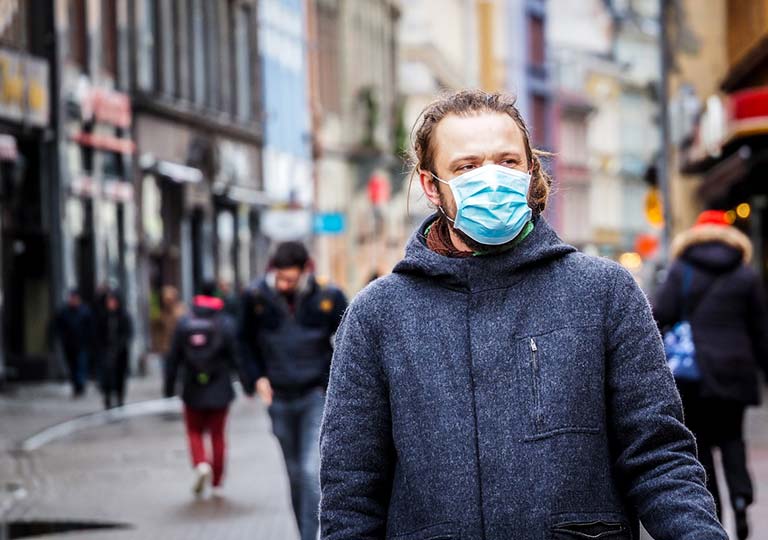How to Find Women’s Dual-Diagnosis Treatment in California
Drug treatment programs do not follow a “one size fits all” philosophy. Specific groups or populations have specific needs that …
Drug treatment programs do not follow a “one size fits all” philosophy. Specific groups or populations have specific needs that …
Today, it feels like everything has changed?it?s either been closed, postponed, or canceled. Some states have officially shut down. You?re working from home, while watching your kids (and trying to teach them). You haven?t seen or hugged your loved ones in weeks. Lorem ipsum dolor sit amet, consectetur adipiscing elit. Praesent porta justo sit amet blandit volutpat. Proin vel lacinia justo. In blandit ultricies risus a porttito…
Today, it feels like everything has changed?it?s either been closed, postponed, or canceled. Some states have officially shut down. You?re working from home, while watching your kids (and trying to teach them). You haven?t seen or hugged your loved ones in weeks.
If you?re struggling with all of this, know you?re not alone. And know that there are concrete (small) steps you can take to feel better. Below are three mental health concerns you might be currently struggling with?and how you can effectively navigate them. During such a painful, unprecedented time, it?s natural to get sucked into worst-case-scenario thinking. And it doesn?t matter how many times you reassure yourself that everything will be fine, you only end up feeling worse.
It also can help to remind yourself that these catastrophic thoughts aren?t ?expressions of facts,? Rajaee said. Rather, they?re ?expressions of fear??our brain?s way of trying to protect us, she said.
This makes sense. ?We are in a catastrophic situation, so some level of catastrophic thinking feels appropriate,? said Jenn Hardy, Ph.D, a psychologist with a private practice in Maryville, Tenn. ?The last thing that our anxiety needs to hear is some type of patronizing and dismissive reassurance.? Instead, Hardy suggested acknowledging that your concerns have validity in our current climate.


Concern: You feel disconnected and lonely.
You miss seeing your parents, taking walks with your best friend, and eating lunch with your coworkers. Whatever travel plans you had?like visiting your family in the spring?are now canceled. And you?re (understandably) devastated. The good news is that we can bust loneliness by getting creative.
Maybe even deeper ways. For example, tap into technology by using Zoom, Skype, or FaceTime to virtually play games together, said Sheva Rajaee, MFT, founder of The Center for Anxiety and OCD in Irvine, Calif.Or try these additional connection boosters with your loved ones, which come from Clinton Power:
New York City psychotherapist and coach Kate Crocco, MSW, LCSW, suggested being the first person to reach out. ?Often the best medicine for fear and sadness is being there for someone else.?
Today, it feels like everything has changed? it’s either been closed, postponed, or canceled. Some states have officially shut down. You’re working from home, while watching your kids (and trying to teach them). You haven’t seen or hugged your loved ones in weeks.
If you’re struggling with all of this, know you?re not alone. And know that there are concrete (small) steps you can take to feel better. Below are three mental health concerns you might be currently struggling with? And how you can effectively navigate them. During such a painful, unprecedented time, it’s natural to get sucked into worst-case-scenario thinking. And it doesn’t matter how many times you reassure yourself that everything will be fine, you only end up feeling worse.
It also can help to remind yourself that these catastrophic thoughts aren’t ?expressions of facts,? Rajaee said. Rather, they’re ?expressions of fear??our brains way of trying to protect us, she said.
This makes sense. ?We are in a catastrophic situation, so some level of catastrophic thinking feels appropriate,? said Jenn Hardy, Ph.D., a psychologist with a private practice in Maryville, Tenn. ? The last thing that our anxiety needs to hear is some type of patronizing and dismissive reassurance.? Instead, Hardy suggested acknowledging that your concerns have validity in our current climate.


Concern: You feel disconnected and lonely.
You miss seeing your parents, taking walks with your best friend, and eating lunch with your coworkers. Whatever travel plans you had? Like visiting your family in the spring? are now canceled. And you’re (understandably) devastated. The good news is that we can bust loneliness by getting creative.
Maybe even deeper ways. For example, tap into technology by using Zoom, Skype, or FaceTime to virtually play games together, said Sheva Rajaee, MFT, founder of The Center for Anxiety and OCD in Irvine, California. Or try these additional connection boosters with your loved ones, which come from Clinton Power:
New York City psychotherapist and coach Kate Crocco, MSW, LCSW, suggested being the first person to reach out. ?Often the best medicine for fear and sadness is being there for someone else.?
Today, it feels like everything has changed?it?s either been closed, postponed, or canceled. Some states have officially shut down. You?re working from home, while watching your kids (and trying to teach them). You haven?t seen or hugged your loved ones in weeks.
If you?re struggling with all of this, know you?re not alone. And know that there are concrete (small) steps you can take to feel better. Below are three mental health concerns you might be currently struggling with?and how you can effectively navigate them. During such a painful, unprecedented time, it?s natural to get sucked into worst-case-scenario thinking. And it doesn?t matter how many times you reassure yourself that everything will be fine, you only end up feeling worse.
It also can help to remind yourself that these catastrophic thoughts aren?t ?expressions of facts,? Rajaee said. Rather, they?re ?expressions of fear??our brain?s way of trying to protect us, she said.
This makes sense. ?We are in a catastrophic situation, so some level of catastrophic thinking feels appropriate,? said Jenn Hardy, Ph.D, a psychologist with a private practice in Maryville, Tenn. ?The last thing that our anxiety needs to hear is some type of patronizing and dismissive reassurance.? Instead, Hardy suggested acknowledging that your concerns have validity in our current climate.


Concern: You feel disconnected and lonely.
You miss seeing your parents, taking walks with your best friend, and eating lunch with your coworkers. Whatever travel plans you had?like visiting your family in the spring?are now canceled. And you?re (understandably) devastated. The good news is that we can bust loneliness by getting creative.
Maybe even deeper ways. For example, tap into technology by using Zoom, Skype, or FaceTime to virtually play games together, said Sheva Rajaee, MFT, founder of The Center for Anxiety and OCD in Irvine, Calif.Or try these additional connection boosters with your loved ones, which come from Clinton Power:
New York City psychotherapist and coach Kate Crocco, MSW, LCSW, suggested being the first person to reach out. ?Often the best medicine for fear and sadness is being there for someone else.?
Happiness looks different for everyone. For you, maybe it?s being at peace with who you are. Or having a secure network of friends who accept you unconditionally. Or the freedom to pursue your deepest dreams. Regardless of your version of true happiness, living a happier, more satisfied life is within reach. Lorem ipsum dolor sit amet, consectetur adipiscing elit. Praesent porta justo sit amet blandit volutpat. Proin vel lacinia justo. In blandit ultricies risus a porttito…
Introduction Do you know the origins of the term narcissistic personality disorder? The character Narcissus from Greek mythology is the …
Alcoholism in the young adult is possible no matter what kind of background they come from– rich, poor, abusive, not abusive, functional, dysfunctional, it doesn’t matter. The disease of alcoholism is a disease of the mind which can be genetic. Alcoholism in the young adult is very difficult to deal with, especially for the families. […]
As alcoholics hardly ever admit their problem with alcohol and the signs of alcoholism in women can often be difficult to find, the disease of alcoholism can go untreated and multiple health problems can occur. Extreme alcohol use can cause exhaustion and short-term memory loss, as well as weakness and paralysis of the eye muscles. […]